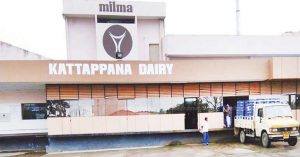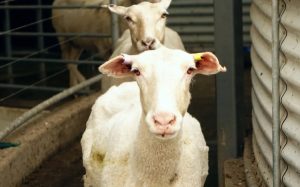As the fund-starved Punjab government is staring at ‘fall of the cliff’ scenario post ending of Goods and Services Tax (GST) compensation regime in June, it has not only urged the Union finance minister Nirmala Sitharaman to extend the GST compensation period for atleast another five years, but being a border state, it has also sought Rs 50,000 crore special package spread over next five years.
The Union finance minister is going to present her second Covid pandemic-era budget for the fiscal year 2022-23 on February 1 in a paperless form. With the start of the GST regime, Punjab has lost 25% of the total tax revenues on account of abolition of taxes like the purchase tax and infrastructural development fee levied on food rains by the state. Also, the revenue collection in the GST regime over the past four years has not shown expected revenue buoyancy to match the guaranteed increase provided under the compensation regime.
Arguing its case for the special package, the state government has pointed out that Punjab shares a 550-km long border with a hostile neighbour Pakistan which has been pumping arms and drugs regularly in the state. Therefore, there is a requirement of funds under modernisation of the police forces scheme and package for developing infrastructure, both social and related to security, to crowd-in private investment in border districts.
It has also been strongly pleaded by the state to maintain the status-quo and allow the states unconditional borrowing at least 4% of the gross state domestic product (GSDP) for financial year 2022-23 and a top up with the conditional borrowing of 1% of GSDP. “It is also essential to relax the limits of fiscal deficit limit for states to 5% for fiscal year 2022-23 as it would provide an elbow room to the states to boost up their economy,” the state government said.
Since paddy stubble burning has been an alarming issue, the Punjab government has submitted that people respond to incentives to change their behaviour. Therefore, Sitharaman has been urged to announce Rs 100 per quintal as bonus on the minimum support price (MSP) for those farmers who do not engage in stubble burning. As the sugar sector is in trouble and access to cheap finance would help it survive, the state government has urged to revive the Sugar Development Fund (SDF) to provide soft loans to sugar mills.
The state government has also requested to continue the Special Assistance for Capital Expenditure(SACE) initiative not only for the financial year 2022-23 but also for future years. “Punjab in particular needs this support, as it has built critical infrastructure across various sectors without Government of India support, which is now clamouring for its upkeep due to dearth of funds,” the state government has pleaded.
Highlighting that Punjab has been a nursery for sportsmen and a world class sports university is being developed in Patiala, the Punjab government has pressed the demand for a special grant of Rs 500 crore in the budget for this university.
Health Infrastructure:
The Union finance minister has been urged to consider disbursement of special grant of Rs 500 crore to Punjab for fight against Covid-19 and ensuing Omicron pandemic to meet unexpected health challenges for creating medical infrastructure. The state government has also demanded additional funds amounting to Rs 105 crore and Rs 93 crore for establishing medical colleges at Kapurthala and Hoshiarpur, respectively, in view of the revised projection cost estimations. As the state intends to establish new medical colleges at Malerkotla and Sangrur with a project outlay of Rs 325 crore and Rs 345 crore, respectively, Sitharaman has been urged to include these two projects in the upcoming Union budget.
Central Schemes Pattern:
Since the fund-starved Punjab government has failed to contribute its share in various centrally sponsored schemes in the past few years, it has urged Sitharaman to consider an increase of atleast 10% in the central share especially in the health and social sector related schemes. Also, in the Anganwadi Service Scheme, the state has submitted that from the initial sharing pattern of 90:10 (Centre:State), it has come to 25:75 and as per the new guidelines no funds shall be provided by the Centre for infrastructural needs, while supplementary nutrition rates have been reduced. Punjab has also urged Sitharaman to release pending funds amounting to Rs 288 crore under this scheme.
Lingering CCL Issue:
The Punjab government has again taken up the issue of Rs 30,584 crore outstanding cash credit limit(CCL) loan on account of the food grain procurement for the central pool pending since 2017. The entire liability of this amount was transferred to Punjab, resulting in total outflow of Rs 57,358 crore during the repayment tenure of this loan. Punjab government has again petitioned the Union finance minister to provide a relief of Rs 6,155 crore from this unsustainable debt burden as recommended by the 15th Finance Commission notified sub-committee headed by Ramesh Chand. The CCL debt was extended to the Punjab government at an interest rate of 8.25% in 2017 whereas the average cost of market borrowings at present is in the range of 6.90% – 7.15%. Therefore, the state government has urged Sitharaman to intervene and nudge the consortium of banks to lower the interest rate of this clean term loan as the renegotiation clause exists in the agreement.
Professional Tax Limit:
The state government has reiterated its earlier request to move the necessary amendment to Article 276(2) of the Constitution of India to raise the ceiling of professional tax from Rs 2,500 to Rs 12,000 per annum. This could become a good source of income for the state and local self-bodies of the state by augmenting their resource pool. Finance minister Manpreet Singh Badal had announced Rs 200 per month professional tax on income tax payees while presenting his second budget.
Taxation Issues:
The Union finance minister has also been urged to revisit the structure of levying cess or surcharge on excise duty of five petroleum products namely crude oil, motor spirit, diesel, aviation turbine fuel and natural gas as it is against the principle of cooperative federalism because levy of cess and surcharge has led to reduction in tax component of excise duty by 40% in petrol and by 60% in diesel in last four years. As GST rates for various milk products range from 5% to 18%, considering the importance of the dairy sector, the state has urged for a uniform GST at 5%
Cheap & Clean Power:
As the landed cost of coal for power generation gets increased substantially for northern states including Punjab since thermal power stations are located away from coal mines, Sitharaman has also been urged to subsidise the movement of coal for power plants and reduce rail freight for coal. Freight component of coal supply to these states works out to about 55% of the landed cost of coal. Any reduction in coal freight would help provide cheaper electricity and promote industrialisation in the state of Punjab.
PENDING FUNDS of 280 Crore for tackling water logging problem in the state
Highlighting its long unaddressed demand, the state government has also asked Sitharaman to release Centre’s share of Rs 280 crore related to the projects for tackling water logging problem in Muktsar, Fazilka, Faridkot, Ferozepur, Gurdaspur and Ropar districts. It has also been flagged that the central government under the Mahatma Gandhi National Rural Employment Guarantee Scheme has not been releasing material component payments in proportion to the actual liabilities and there is a need to immediately release Rs 160 crore pertaining to the financial year 2021-22. In spite of umpteen requests, the Union ministry of rural development is yet to release over Rs 84 crore backlog funds under the National Social Assistance Programme (NSAP).

















